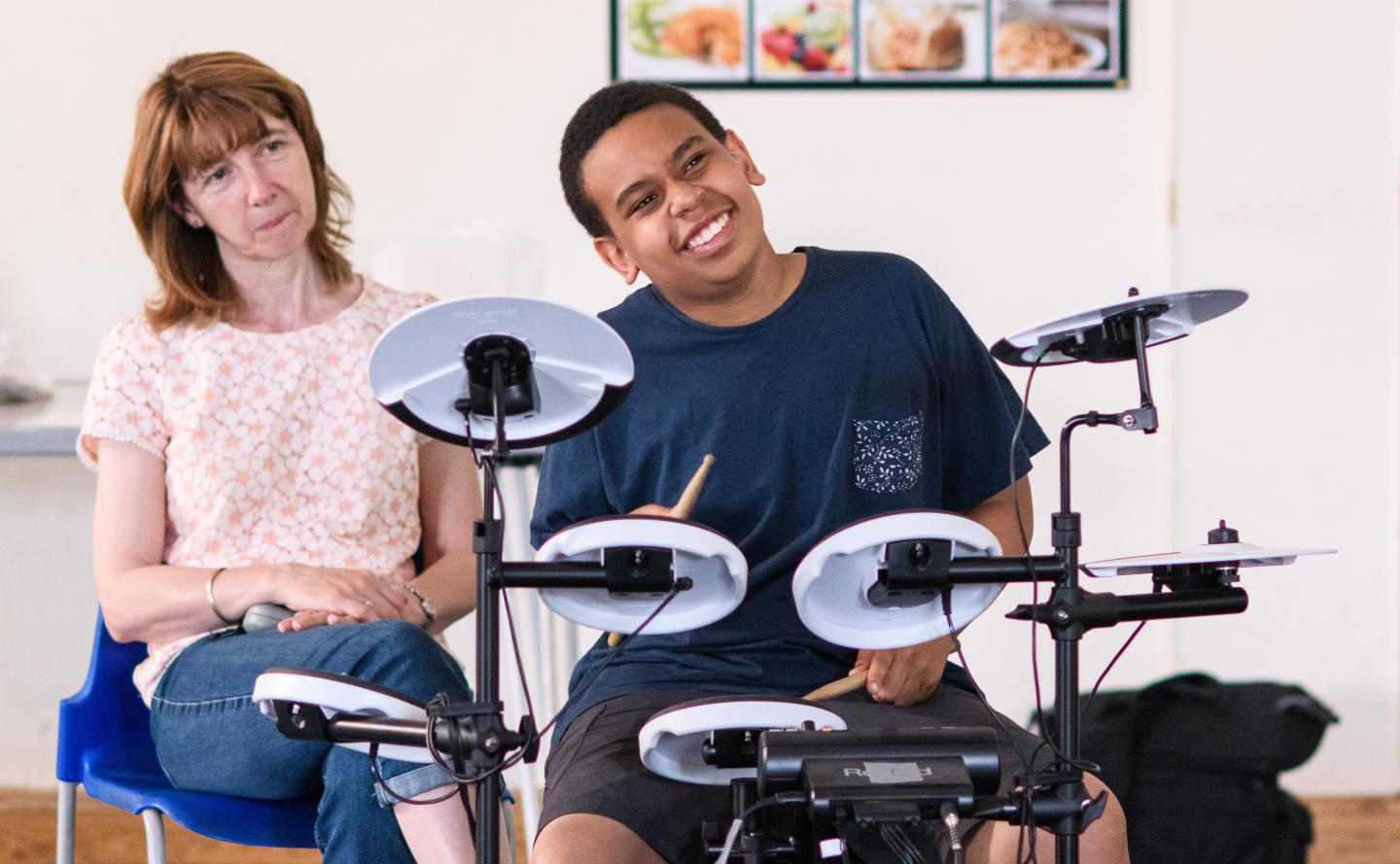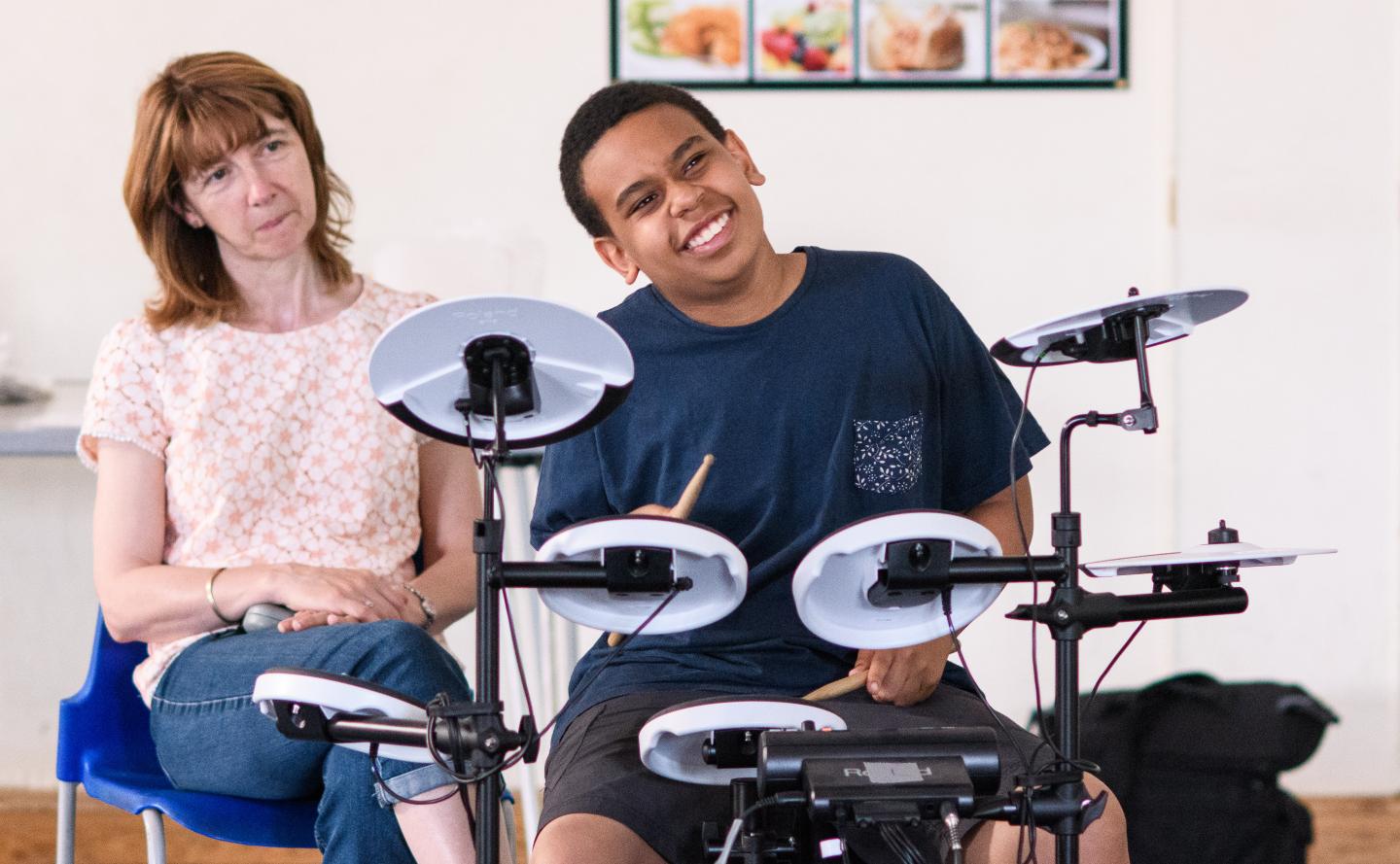
Credit: University of Chichester
- Drumming for an hour a week can help autistic children learn in school
- Study shows pupils' ability to follow instructions improved after ten weeks
- Children showed significant improvements in dexterity, rhythm, and timing
DRUMMING for 60 minutes a week can benefit children diagnosed with autism and supports learning at school, according to a new scientific study.
The project, led by the University of Chichester and University Centre Hartpury, showed students' ability to follow their teachers' instructions improved significantly and enhanced their social interactions between peers and members of school staff.
Research involved pupils from Milestone School in Gloucester who took part in a ten-week drumming programme comprising two 30-minute sessions each week. Observations of the weekly lessons also highlighted significant improvements in dexterity, rhythm and timing.
The investigation is a continuation of research undertaken by the academics, known collectively as the Clem Burke Drumming Project that includes the iconic Blondie drummer, and is aimed at demonstrating the value of the musical instrument to school pupils requiring additional education support.
Lead researcher Dr Marcus Smith, a Reader in Sport and Exercise Physiology at University of Chichester, said: "This is a unique and remarkable research project that has demonstrated the positive impact on a pupil's health and wellbeing following rock drumming practice. Rock drumming as a potent intervention for individuals experiencing brain disorders, such as autism, is fascinating and I am delighted that it builds upon the pioneering work undertaken by colleagues from the Clem Burke Drumming Project."
Class teachers evaluated behavioural changes within the classroom across the ten-week drumming intervention, with preliminary evidence highlighting positive outcomes. Each lesson was delivered by drumming tutors using electronic drum kits provided by charities in Gloucestershire.
Preliminary results showed:
- A vast improvement in movement control while playing the drums, including dexterity, rhythm, timing.
- Movement control was also enhanced while performing daily tasks outside the school environment, including an improved ability to concentrate during homework.
- A range of positive changes in behaviour within school environment, which were observed and reported by teachers, such as improved concentration and enhanced communication with peers and adults.
The focus of the sessions, held at an agriculture classroom at Hartpury, was on learning and having fun while playing to popular songs. An in-depth explanation of key findings related to changes in social, behavioural, and motor control will be reported following the completion of on-going data analysis.
Dr Steve Draper, Dean Research and Knowledge Exchange, Hartpury, added: "Drumming has a unique blend of physical activity, coordination and musicality, all of which are known to be beneficial to well-being. It has been amazing to watch the children thrive and develop to this challenge. Drumming has the potential to positively impact a wide range of people."
Also involved in the study is Dr Ruth Lowry, a Reader in the Psychology of Active Living at the University of Chichester. She said: "The opportunity to see this group of children progress and develop through developing skills in music is powerful. We hope that this project will provide further evidence that not only does rock drumming have positive benefits in terms of changes in dexterity and concentration but that wider social and behavioural conduct benefits can also be observed."
For full details about the Clem Burke Drumming Project, which includes all studies across the ten-year investigation, go to http://www.clemburkedrummingproject.org.
###
NOTES TO EDITORS
Sky Arts documentary about study
- A Sky Arts documentary about the project will be broadcast at 9pm this weekend, Saturday 15 September.
- Weblink: http://www.sky.com/watch/channel/sky-arts/my-view-clem-burke
- An access all areas documentary with Clem Burke, a look back at 40 years on the road and performing with one of the world's most iconic bands.
- Part four of the documentary focuses on the joint research team's recent investigation into drumming and how it can re-shape the brain.
Research publication
- Effect of ten-week drumming intervention on psychosocial behaviour and drumming ability in schoolchildren with Autistic Spectrum Disorder.
- Lowry, R. G., Hale, B., Draper, S., & Smith, M. (2018, in press).
- International Journal of Developmental Difficulties.
- DOI: 10.1080/20473869.2018.1429041
Media Contact
James Haigh
[email protected]
44-124-381-6495
@chiuni
http://www.chi.ac.uk
Original Source
https://www.chi.ac.uk/news/scientists-reveal-drumming-helps-schoolchildren-diagnosed-autism





